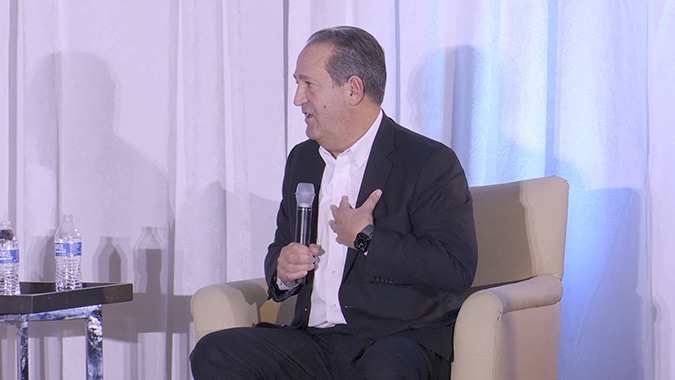The state must boost funding for community-based behavioral health services because a declining network of providers faced with a growing number of people who need their help is causing lengthy delays in accessing treatment, according to the New Jersey Association of Mental Health and Addiction Agencies.
NJAMHAA President and CEO Debra Wentz, Ph.D., on Tuesday announced the launch of the organization’s Untold Stories campaign, which aims to demonstrate to lawmakers and the Murphy administration why significant funding increases are needed in the next state budget.
Behavioral healthcare has a severe workforce crisis caused by many providers leaving the field during the pandemic, inadequate salaries, and the stress of trying to manage caseloads that have more than doubled, NJAMHAA said. Patients unable to access timely treatment are at greater risk of suicide, overdoses, hospitalization, job loss, homelessness, and imprisonment.
“Sufficient investment in our behavioral healthcare system must not be delayed any longer,” said Wentz. “It is necessary for all New Jersey residents’ health and wellbeing, as well as the state’s bottom line as delays and lack of services inevitably lead to much more expensive treatment and other situations that harm individuals and the state overall.”
Among the key action items that NJAMHAA wants the Legislature and Murphy administration to prioritize in the FY 2026 budget year, which begins July 1, is $43.2 million in state funding to provide an 8% across-the-board increase to New Jersey’s Medicaid rates and contracts. This would be matched by $16.8 million in federal funds to generate a total $60 million.
The funding is needed to make wages more competitive and because outpatient behavioral health programs are being carved into Medicaid managed care effective Jan. 1, 2025, which means providers are facing increased managed care costs, NJAMHAA said.
“These include additional billing staff, new and/or updated electronic health record systems, and other administrative and clinical staff to provide the necessary effort for obtaining prior authorizations and claims reimbursement,” the Untold Stories report says. “Providers also anticipate an increase in denied claims, as has been the experience of providers serving the already carved-in special populations, which will reduce revenues.
“It is imperative that rates and contracts be increased for sustainability and expansion. It is estimated that a 33% increase to New Jersey’s Medicaid rates, currently among the lowest in the nation, is needed in order to: make wages competitive; support the additional burdens of managed care; and fully cover the cost of care, including all operational costs,” the report says.
Additional NJAMHAA recommendations include:
- Legislative passage A-1143/S-1032 to ensure the State considers a cost-of-living adjustment for human services’ rates and contracts each year.
- Legislative passage of S-2504/A-3937 to set Medicaid rates for mental health services equal to Medicare rates for the same services.
- $10 million in state funds to maintain New Jersey’s Certified Community Behavioral Health Clinics, which provide a full continuum of care that ranges from detox and mental health crisis services to care management assistance with social determinants of health and everything in between, including primary medical care
- $5 million for recruitment and retention bonuses for behavioral healthcare staff
- $5 million in incentives for behavioral healthcare organizations to become field placement sites and provide clinical supervision of interns
- Legislative passage of S-3565/A-2803 with amendments to include social work Interns and Master of Social Work Alcohol and Drug Counselor students in the definition of healthcare provider for the purpose of providing telehealth services
- Clarify that unlicensed and non-certified staff may provide telehealth services equivalent to those they are permitted to provide in person
- Legislative passage of S-1761/A-2805 to address professional licensing backlogs and bring accountability to New Jersey’s licensing boards
- $300,000 for training staff who provide services to children with intellectual and developmental disabilities
- More in-patient beds for children with intellectual and developmental disabilities
- $17 million in state funds to increase Care Management Organizations’ per member/per month rate to $1,200 (garnering a $17 million federal match)
- $3 million increase in funding for School Based Youth Services Programs
Go here to learn more about the recommendations, successes stories, as well as the adverse experiences of service recipients and behavioral healthcare staff, detailed in NJAMHAA’s Untold Stories report.




